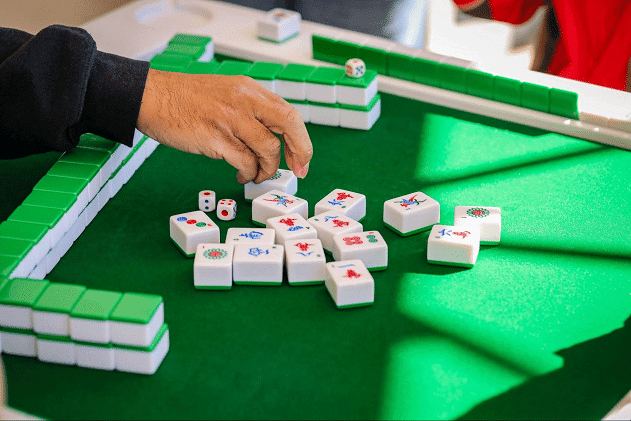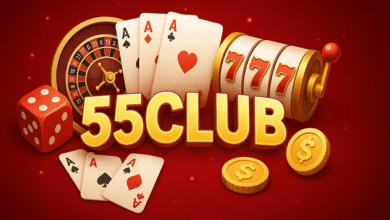How Demo Mahjong Games Are Bringing Asian Culture to Online Gaming

The online gaming industry has witnessed a cultural revolution demo mahjong in recent years, with games inspired by various traditions and regions gaining significant popularity. Among these, demo mahjong games have become a powerful medium for introducing Asian culture to a global audience. Rooted in rich history and cultural significance, mahjong has transitioned from traditional tiles on tables to digital interfaces accessible to players worldwide. This article explores how demo mahjong games are bridging the cultural gap and creating a unique experience in online gaming.
A Brief History of Mahjong
Mahjong originated in China during the Qing Dynasty and has since evolved into a beloved pastime across East Asia and beyond. Traditionally played with 144 tiles, mahjong involves skill, strategy, and a bit of luck. It reflects elements of Chinese philosophy, such as Confucian values and symbolic representations of nature and prosperity. Over time, mahjong has become a cultural icon, symbolizing gatherings, celebrations, and family bonding.
The transition of mahjong to the digital realm has allowed the game to transcend geographical boundaries. Demo versions, in particular, offer free and accessible opportunities for players to learn and enjoy the game without prior knowledge or financial commitment.
Preserving Authenticity in the Digital Format
Developers of demo mahjong games face the challenge of maintaining the authenticity of the traditional game while adapting it to a digital format. Many succeed by incorporating original tile designs, traditional rules, and even ambient music reminiscent of Chinese tea houses. These features create an immersive experience that stays true to the cultural roots of mahjong.
Additionally, developers often include variations of mahjong popular in different regions, such as Hong Kong-style, Japanese Riichi, and American mahjong. By offering these variations, demo mahjong games serve as a cultural encyclopedia, showcasing the diversity and adaptability of the game within Asian traditions.
Making Mahjong Accessible to Global Audiences
Demo mahjong games play a crucial role in introducing new players to the game. These versions are typically free to play and offer tutorials that teach the basics, making it easier for beginners to understand the rules and strategies. By lowering the entry barrier, these games enable more people to explore and appreciate mahjong.
Language support is another factor that enhances accessibility. Many demo mahjong games are available in multiple languages, allowing players from different parts of the world to enjoy the game without linguistic barriers. This inclusivity has been instrumental in spreading Asian culture through gaming.
Promoting Cultural Appreciation
One of the most significant contributions of demo mahjong games is their ability to foster cultural appreciation. Through detailed tutorials and explanations, players can learn about the history, symbolism, and traditions associated with mahjong. For instance, they might discover the meanings behind specific tile designs, such as the bamboo representing vitality or the red dragon symbolizing good fortune.
Moreover, demo mahjong games often incorporate cultural storytelling elements, such as traditional festivals, folklore, and even historical events. This narrative approach not only enhances the gaming experience but also educates players about Asian heritage.
Encouraging Social Interaction
In traditional settings, mahjong is a social game that brings people together. Digital versions aim to replicate this experience by offering multiplayer modes where players can connect with others worldwide. These interactions often lead to cultural exchanges, as players from different backgrounds share their interpretations and styles of play.
Some platforms also host online tournaments, creating a community of mahjong enthusiasts. These events celebrate the game’s cultural significance while promoting friendly competition and camaraderie. By blending traditional social aspects with modern technology, demo mahjong games uphold the essence of the game as a unifying activity.
Inspiring Cultural Fusion in Game Design
The success of demo mahjong games has inspired developers to experiment with cultural fusion in game design. Many incorporate elements from other Asian cultures, such as Japanese cherry blossoms, Korean art, or Vietnamese music, creating a richer and more diverse gaming experience. This fusion not only attracts a broader audience but also highlights the interconnectedness of Asian cultures.
Furthermore, some developers use mahjong as a foundation for innovative gameplay, combining traditional elements with modern mechanics like puzzles or role-playing. These adaptations cater to contemporary gamers while preserving the cultural essence of mahjong.
Bridging Generational Gaps
The digital adaptation of mahjong has also bridged generational gaps. Older generations familiar with traditional mahjong can connect with younger players through online platforms. Demo versions serve as an entry point for younger audiences who may not have had the opportunity to learn the game in its traditional form. This cross-generational engagement ensures the continuity of mahjong’s cultural legacy.
The Future of Demo Mahjong Games
As technology advances, the potential for demo mahjong games to promote Asian culture continues to grow. Virtual reality (VR) and augmented reality (AR) technologies could revolutionize the gaming experience, offering even more immersive ways to explore the traditions and aesthetics of mahjong. Developers are also exploring collaborations with cultural institutions to create historically accurate and educational versions of the game.
In addition, the rise of mobile gaming ensures that demo mahjong games will remain accessible to a global audience. With smartphones becoming increasingly ubiquitous, more players will have the opportunity to experience the charm of mahjong and its cultural significance.
Conclusion
Demo mahjong games are more than just a form of entertainment; they are a gateway to understanding and appreciating Asian culture. By preserving authenticity, promoting accessibility, and encouraging social interaction, these games have successfully brought the traditions of mahjong to the digital age. As they continue to evolve, demo mahjong games will undoubtedly play a vital role in bridging cultural gaps and fostering global appreciation for one of Asia’s most cherished pastimes.




